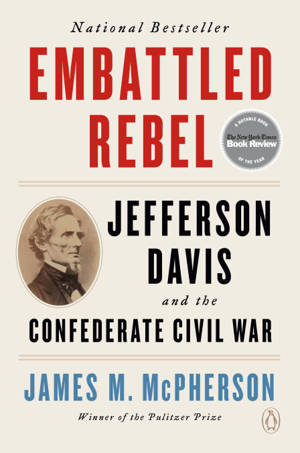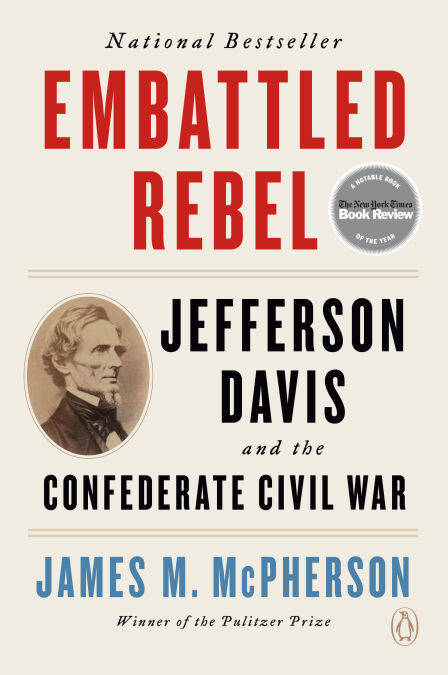
- Afhalen na 1 uur in een winkel met voorraad
- Gratis thuislevering in België vanaf € 30
- Ruim aanbod met 7 miljoen producten
- Afhalen na 1 uur in een winkel met voorraad
- Gratis thuislevering in België vanaf € 30
- Ruim aanbod met 7 miljoen producten
Embattled Rebel E-BOOK
Jefferson Davis and the Confederate Civil War
James M. McPherson
E-book | Engels
€ 10,77
+ 10 punten
Omschrijving
From the Pulitzer Prize–winning author of Battle Cry of Freedom, a powerful new reckoning with Jefferson Davis as military commander of the Confederacy
“The best concise book we have on the subject… McPherson is… our most distinguished scholar of the Civil War era.” —The New York Times Book Review
History has not been kind to Jefferson Davis. Many Americans of his own time and in later generations considered him an incompetent leader, not to mention a traitor. Not so, argues James M. McPherson. In Embattled Rebel, McPherson shows us that Davis might have been on the wrong side of history, but that it is too easy to diminish him because of his cause’s failure. Gravely ill throughout much of the Civil War, Davis nevertheless shaped and articulated the principal policy of the Confederacy—the quest for independent nationhood—with clarity and force. He exercised a tenacious hands-on influence in the shaping of military strategy, and his close relationship with Robert E. Lee was one of the most effective military-civilian partnerships in history.
Lucid and concise, Embattled Rebel presents a fresh perspective on the Civil War as seen from the desk of the South’s commander in chief.
“The best concise book we have on the subject… McPherson is… our most distinguished scholar of the Civil War era.” —The New York Times Book Review
History has not been kind to Jefferson Davis. Many Americans of his own time and in later generations considered him an incompetent leader, not to mention a traitor. Not so, argues James M. McPherson. In Embattled Rebel, McPherson shows us that Davis might have been on the wrong side of history, but that it is too easy to diminish him because of his cause’s failure. Gravely ill throughout much of the Civil War, Davis nevertheless shaped and articulated the principal policy of the Confederacy—the quest for independent nationhood—with clarity and force. He exercised a tenacious hands-on influence in the shaping of military strategy, and his close relationship with Robert E. Lee was one of the most effective military-civilian partnerships in history.
Lucid and concise, Embattled Rebel presents a fresh perspective on the Civil War as seen from the desk of the South’s commander in chief.
Specificaties
Betrokkenen
- Auteur(s):
- Uitgeverij:
Inhoud
- Aantal bladzijden:
- 320
- Taal:
- Engels
Eigenschappen
- Productcode (EAN):
- 9780698176348
- Verschijningsdatum:
- 6/10/2014
- Uitvoering:
- E-book
- Beveiligd met:
- Adobe DRM
- Formaat:
- ePub

Alleen bij Standaard Boekhandel
+ 10 punten op je klantenkaart van Standaard Boekhandel
Beoordelingen
We publiceren alleen reviews die voldoen aan de voorwaarden voor reviews. Bekijk onze voorwaarden voor reviews.










